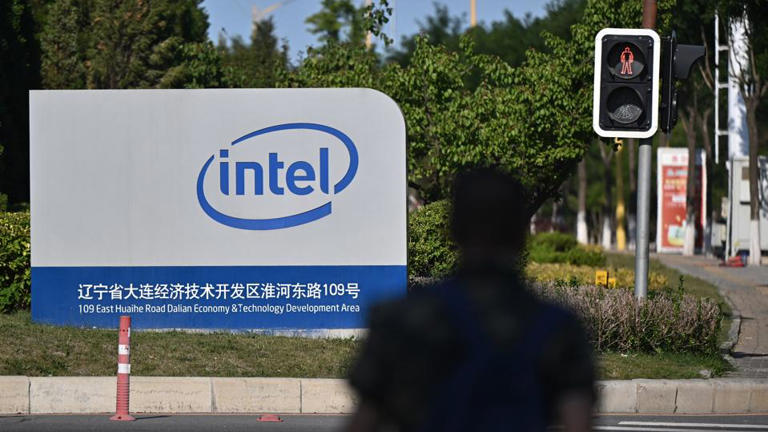Intel, a longstanding giant in Silicon Valley, has recently experienced a notable resurgence in its stock price, marking a turnaround from its struggles in recent years. Despite a challenging first half of the year, characterized by underperformance compared to its peers, Intel’s stock surged 2% to over $35 at the opening bell, reaching its highest level since mid-April. This upward momentum followed a substantial 6.2% gain the previous day, driven in part by optimistic assessments from analysts like Ben Reitzes of Melius Research.
Reitzes highlighted Intel as an “unloved” stock that may be poised for a “seasonal bounce,” part of a broader market trend favoring stocks with lower expectations in artificial intelligence (AI) and related technologies. This sentiment has positioned Intel as the third top-performing stock on the S&P 500 in July, trailing behind only Tesla and Corning, with impressive gains of 13%.
The positive movement extended beyond Intel, encompassing the broader semiconductor sector. The Philadelphia Stock Exchange’s Semiconductor index (SOX) rose nearly 1%, reflecting a collective uptick in investor confidence in semiconductor stocks. Leading companies like Nvidia and Micron, known for their innovations in graphics processing units (GPUs) and memory solutions respectively, also saw their shares increase by approximately 3%, contributing to the overall buoyancy in the sector.
However, despite these recent gains, Intel faces significant challenges and remains one of the weakest performers on the S&P 500 for the year. Its stock has declined by 32% year-to-date, illustrating ongoing concerns about its competitive positioning in the fast-evolving tech landscape. Over the past three years, Intel has notably underperformed compared to its peers such as Nvidia, Advanced Micro Devices (AMD), Broadcom, Micron, and even the broader Nasdaq Composite index. This underperformance underscores doubts about Intel’s ability to capitalize on the burgeoning demand for advanced technologies like generative AI, where competitors have made substantial strides and secured market dominance.
Looking forward, market analysts and investors are eagerly anticipating Intel’s upcoming quarterly earnings report, scheduled later this month. Analysts project only a modest 0.2% increase in second-quarter revenues, contrasting sharply with Nvidia’s impressive triple-digit revenue growth in the previous quarter. This divergence highlights the competitive challenges Intel faces in sustaining market leadership and investor confidence amidst intensifying competition and technological advancements.
In conclusion, while Intel’s recent stock rally provides a temporary boost, its long-term trajectory hinges significantly on its ability to demonstrate sustained growth and innovation. The company’s efforts to navigate the complexities of the AI revolution and other emerging technologies will be critical in shaping its future relevance and competitive edge in the global tech industry.
